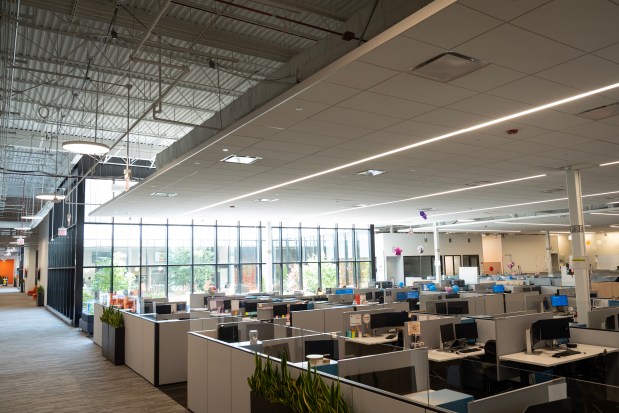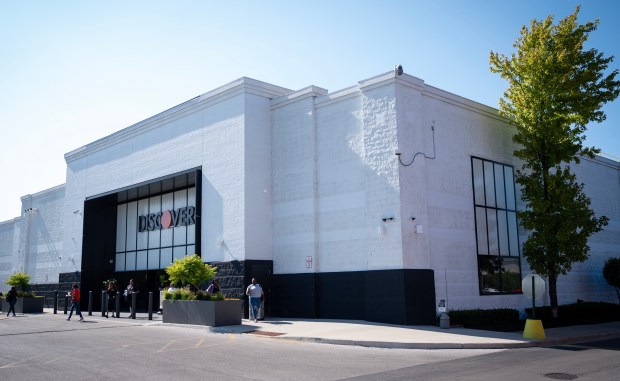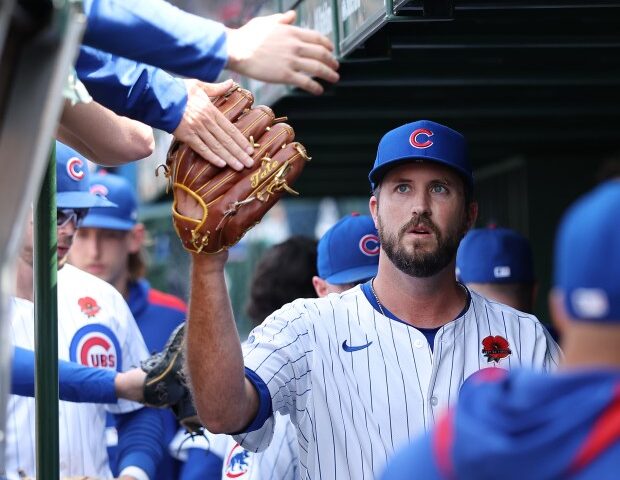Looking to win regulatory approval for its proposed $35 billion Discover Financial Services acquisition, Capital One announced a massive community benefits plan this week with a significant focus on low- and moderate-income Chicago neighborhoods.
The five-year, $265 billion plan, which is spread out across Capital One’s national footprint, includes a commitment to maintain Discover’s three-year-old call center in Chatham on Chicago’s South Side, and increase employment from 600 to 1,000 people, its original hiring target.
In addition, Virginia-based Capital One plans to open a second banking cafe on the South Side and donate at least $20 million over five years to Chicago organizations, an “incremental” increase to the amounts donated separately by the two financial institutions.
“The formula is one plus one has to equal more than two,” said Andy Navarrete, head of external affairs for Capital One. “It’s not enough to say we’re just going to combine the two organizations and do status quo. It’s the idea that as a result of this merger, we’re going to lean more into this kind of activity.”
In February, Capital One announced it was buying Riverwoods-based Discover for $35 billion, merging two of the largest credit card companies and ending another longtime Chicago-area headquarters.
The merger is expected to close in late 2024 or early next year, pending regulatory approval.
The community benefits plan, believed to be the largest announced as part of a proposed financial merger, is contingent upon gaining that approval.
Under the plan, negotiated in part by Woodstock Institute, a Chicago-based nonprofit focused on equitable financial systems, Capital One has committed to grow Discover’s Chatham customer care center, with the goal of adding 400 new employees.
Keeping the call center open was a key negotiating point for the Woodstock Institute, one of four advocacy organizations involved in shaping the plan.
“There were a lot of fears that it would be shut down,” said Horacio Mendez, president of the Woodstock Institute. “We not only were able to introduce Capital One to that call center … we got them to commit to growing the facility to the expected goal of 1,000 jobs.”
The call center was opened in 2021 inside a former Target store, with Discover setting a hiring goal of 1,000 employees by 2025. The current count is 600, most of whom work remotely.
Located at 86th Street and Cottage Grove Avenue, the call center is housed in one of two Target stores on the South Side closed by the retailer in early 2019, a decision met with criticism from community members and city officials.
Discover has been integral in bringing new life to the hulking retail shell.
The call center hires and trains customer service workers, most of whom are recruited from within a 5-mile radius of the facility. New employees spend their first six months at the center, but most chose to work remotely after completing their training, a Discover spokesperson said.
Amenities such as free meals, a gym and health services nonetheless lure some tenured employees to the office on a regular basis. Discover also provides space within the building to house community organizations and host events, keeping the facility busy.
“It looks like an old Target on the outside, but on the inside, it’s a community center,” Navarrete said. “It’s actually kind of morphed more into a community hub than a true call center.”

While most Capital One customer service employees work remotely in the post-pandemic landscape, it has major call centers in Chesapeake, Virginia, and Las Vegas that are maintained primarily for training and other purposes, Navarrete said.
It has also committed to keeping open a new Discover call center near Columbus, Ohio, Navarrete said.
Capital One has three Chicago cafes — banking facilities with a low-key coffee shop vibe — in the Gold Coast, Hyde Park and the Loop. As part of the community benefits plan, it intends to open another cafe on the South Side, as well as one in downstate East St. Louis, in an effort to address so-called banking deserts.
“When you open something like that, you make additional investments in the surrounding community to make sure that those cafes and branches are financially sustainable,” Mendez said. “That means there’s going to be people doing outreach, small businesses, consumers, checking savings, to really drum up that business. And that’s only a positive as far as we’re concerned, for that community.”
rchannick@chicagotribune.com




